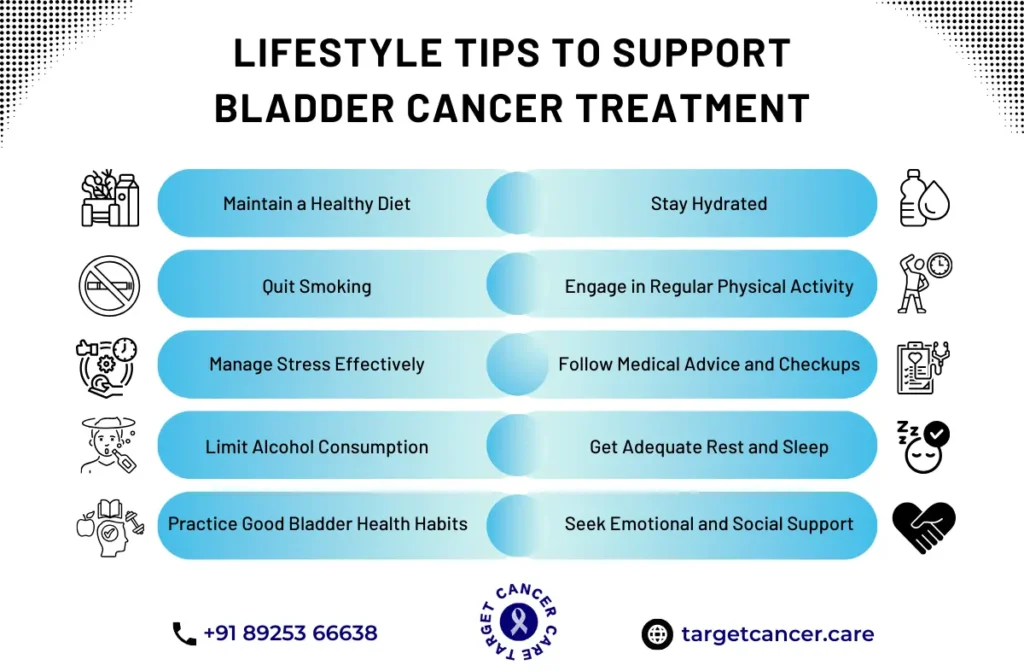Bladder cancer treatment in Chennai combines the latest medical advancements with a patient-centered approach, giving individuals the best chance for recovery and a better quality of life. With numerous specialized hospitals and skilled oncologists, Chennai has become a vital center for advanced bladder cancer care.
What is Bladder and Its Normal Function?
The bladder is a hollow, muscular organ located in the lower abdomen that stores urine produced by the kidneys. It expands to hold urine and contracts during urination to expel it through the urethra. The bladder’s inner lining is composed of urothelial cells, which allow for stretching and protection against urine. This organ plays a crucial role in the body’s waste removal and fluid balance system.
Types of Bladder Cancer
Bladder cancer primarily originates in the urothelial cells lining the bladder. Several types exist, each differing in cellular origin and aggressiveness.
- Urothelial Carcinoma (Transitional Cell Carcinoma): This is the most common type, accounting for over 90% of bladder cancers. It begins in the urothelial cells and can be non-invasive or invasive.
- Squamous Cell Carcinoma: This type forms due to long-term irritation or infection. Though less common in India, it can be aggressive when diagnosed.
- Adenocarcinoma: Originating in glandular cells, this rare type resembles cancers of the gastrointestinal tract. It accounts for about 1-2% of bladder cancers.
- Small Cell Carcinoma: A highly aggressive and rare cancer, it starts in neuroendocrine cells of the bladder and requires urgent, intensive treatment.
- Sarcomatoid and Micropapillary Variants: These are rare subtypes of urothelial carcinoma with distinctive pathological features and usually have a poor prognosis.
Target Cancer Care provides advanced diagnostic tools to identify these subtypes and recommend the most effective Urinary Bladder Cancer Treatment in Chennai based on individual needs.

Causes of Bladder Cancer
Bladder cancer develops when the DNA in bladder cells mutates, leading to uncontrolled cell growth. Several known causes increase the risk:
- Smoking: Tobacco use is the leading cause, responsible for over 50% of cases. Carcinogens from smoke enter the bloodstream and concentrate in urine, irritating the bladder lining.
- Chemical Exposure: Occupational exposure to industrial chemicals like aromatic amines used in dye, rubber, leather, and textile industries significantly raises risk.
- Chronic Infections and Inflammation: Long-term urinary tract infections (UTIs), bladder stones, or use of urinary catheters can lead to cellular changes that may cause cancer.
- Radiation Therapy: Prior radiation to the pelvic region, particularly for cancers like cervical or prostate, increases bladder cancer risk.
- Chemotherapy Drugs: Drugs like cyclophosphamide are associated with bladder cancer after prolonged use.
- Genetic Mutations: Inherited gene mutations or a family history of cancer can contribute to risk.
Recognizing these causes aids in prevention and early detection. If any risk factors are present, individuals should consider timely screening and Urinary Bladder Cancer Treatment in Chennai to improve outcomes and limit complications.
Symptoms of Bladder Cancer
Symptoms of bladder cancer often appear in early stages, making timely diagnosis possible. The most common symptom is:
- Hematuria (Blood in Urine): This may be visible (gross hematuria) or detectable only through tests (microscopic hematuria). Urine may appear pink, red, or cola-colored.
- Frequent Urination: A persistent urge to urinate, even when the bladder isn’t full, can be an early symptom.
- Painful Urination (Dysuria): Burning or pain during urination is a warning sign, especially when not caused by infection.
- Pelvic or Lower Back Pain: In advanced stages, the cancer may spread, causing discomfort or pain in these areas.
- Urinary Urgency and Incontinence: Sudden, uncontrollable urges to urinate may develop.
- Weight Loss or Fatigue: These are often late-stage signs but should not be ignored.
It’s important to note that these symptoms can overlap with other conditions like infections or kidney stones. If persistent, medical evaluation is necessary to rule out malignancy. Early detection ensures access to advanced Bladder Cancer Treatment in Chennai, especially in specialty centers offering targeted therapies and personalized care.
Diagnosis of Bladder Cancer
Diagnosing bladder cancer involves a series of clinical evaluations and imaging tests:
- Urinalysis and Urine Cytology: These tests detect blood or abnormal cancerous cells in the urine.
- Cystoscopy: A thin, flexible tube with a camera is inserted through the urethra to visually inspect the bladder lining for tumors or abnormalities.
- Biopsy (Transurethral Resection of Bladder Tumor – TURBT): If tumors are found during cystoscopy, tissue samples are collected and examined microscopically to confirm cancer type and grade.
- Imaging Tests: CT urogram, MRI, or ultrasound can help detect tumors, evaluate bladder wall invasion, and check for cancer spread to lymph nodes or nearby organs.
- Urine Tumor Marker Tests: Some tests detect specific proteins linked to bladder cancer but are usually supplementary.
Accurate diagnosis guides effective Bladder Cancer Treatment in Chennai, ensuring the right combination of surgery, radiation, or chemotherapy. Advanced centers also assess the Bladder Cancer Treatment Cost in Chennai transparently, offering affordable and personalized plans.
Early diagnosis significantly improves treatment outcomes, especially when opting for Urinary Bladder Cancer Treatment in Chennai that uses state-of-the-art technologies and a multidisciplinary approach.
Risk Factors of Bladder Cancer
Several factors increase the likelihood of developing bladder cancer. Understanding them is key to prevention:
- Tobacco Use: Smoking is the leading risk factor. Carcinogens in cigarettes enter the bladder via urine and damage the lining over time.
- Occupational Hazards: Workers in industries like chemical manufacturing, textile, rubber, and dye are at increased risk due to exposure to harmful substances like benzidine and naphthylamine.
- Age and Gender: Bladder cancer is more common in individuals over 55, and men are four times more likely to be diagnosed than women.
- Chronic Bladder Irritation: Recurrent urinary infections, bladder stones, or long-term catheter use can lead to cell changes in the bladder lining.
- Previous Cancer Treatments: Patients treated with certain chemotherapy drugs or pelvic radiation are more susceptible.
- Family History and Genetic Syndromes: A history of bladder or urothelial cancer in close relatives can increase genetic predisposition.
- Arsenic in Drinking Water: Long-term exposure to arsenic-contaminated water is a known carcinogen.
Recognizing and managing these risks with regular check-ups and lifestyle changes can reduce chances of cancer development. Patients at higher risk are advised to seek preventive screening and consult experts in Bladder Cancer Treatment in Chennai or Bladder Cancer Treatment in Vadapalani.
Stages of Bladder Cancer
Bladder cancer is staged based on how deeply it has invaded the bladder wall and whether it has spread to other areas.
- Stage 0 (Carcinoma in Situ or Papillary Carcinoma): Cancer cells are confined to the bladder’s inner lining and haven’t invaded deeper tissues. It is highly treatable with localized therapy.
- Stage I: Cancer has invaded the connective tissue beneath the lining but hasn’t reached muscle layers.
- Stage II: Tumor has spread into the muscular wall of the bladder, indicating a more invasive disease.
- Stage III: Cancer extends through the bladder wall to nearby tissues or reproductive organs like the prostate, uterus, or vagina.
- Stage IV: The disease has spread to lymph nodes, abdominal wall, or distant organs such as bones, liver, or lungs.
Each stage requires a different approach to Bladder Cancer Treatment in Chennai, including surgery, chemotherapy, immunotherapy, or a combination. Early stages often have better outcomes with less aggressive treatment. For advanced stages, choosing the right center can make a significant difference, especially in places like Bladder Cancer Treatment in Vadapalani, where multidisciplinary care is available. Understanding the stage helps in forecasting prognosis and estimating the Cost of Bladder Cancer Treatment in Chennai.
Treatments for Bladder Cancer
Treatment varies depending on cancer stage, type, and patient health:
- Surgery:
- TURBT (Transurethral Resection of Bladder Tumor): Used for early-stage cancer to remove tumors.
- Cystectomy: Partial or complete removal of the bladder, especially for muscle-invasive cancers.
- Intravesical Therapy:
- Medications like Bacillus Calmette-Guérin (BCG) or chemotherapy drugs are inserted directly into the bladder to treat early-stage cancers.
- Chemotherapy:
- Used before (neoadjuvant) or after (adjuvant) surgery. Systemic chemotherapy treats cancer that has spread beyond the bladder.
- Radiation Therapy:
- Often combined with chemo, especially for patients who cannot undergo surgery.
- Immunotherapy:
- Drugs like immune checkpoint inhibitors are used in advanced cases to help the immune system attack cancer cells.
- Targeted Therapy:
- Used in select cases with specific genetic mutations.
Choosing the right treatment plan involves evaluating cancer stage and individual needs. Hospitals offering Bladder Cancer Treatment in Chennai provide tailored options, including advanced imaging and robotic surgery. Understanding the Bladder Cancer Treatment Cost in Chennai and comparing options, including centers offering Urinary Bladder Cancer Treatment in Chennai, helps in making informed decisions.
Conclusion
Bladder cancer requires timely intervention, accurate diagnosis, and individualized treatment. From early symptoms to advanced disease, Target Cancer Care supports patients through every phase of their journey with expertise and empathy. By leveraging innovative therapies, minimally invasive surgery, and integrated care, we strive to improve outcomes and quality of life for every patient.
Whether you’re newly diagnosed or seeking advanced options, Target Cancer Care offers trusted Bladder Cancer Treatment in Chennai and Bladder Cancer Treatment in Vadapalani. With transparent information on the Cost of Bladder Cancer Treatment in Chennai and dedicated oncology teams, we aim to deliver exceptional care tailored to your health goals.




